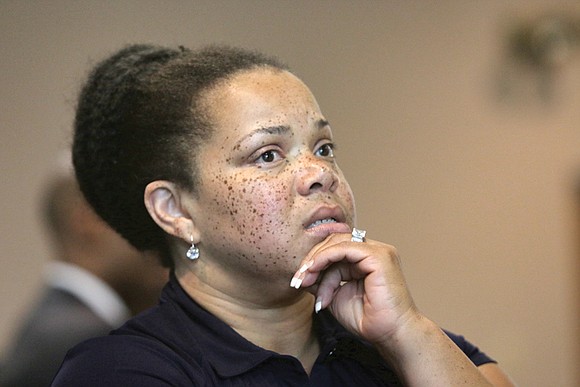Study finds info on students’ emotional and physical disabilities left off referrals to cops, courts
Jeremy M. Lazarus | 6/24/2017, 2:30 p.m.
By Jeremy M. Lazarus
Richmond area school divisions appear to be flouting federal and state regulations by withholding critical information when they refer special education students to law enforcement departments and the courts for serious misconduct, according to a new study.
The study, conducted by Henrico-based Advocates for School Equity, found that schools divisions in Richmond and Chesterfield, Henrico and New Kent counties routinely don’t include information on the diagnosed conditions of the referred students or on their individualized education plans — despite regulations requiring them to do so.
Such information is crucial to help courts, commonwealth’s attorneys and others in law enforcement understand “how the student’s disability might have influenced the actions that led to the referrals, said Kandise Lucas, a longtime advocate for special needs students and founder and leader of ASE.
“What we are seeing are school systems contributing to the school-to-prison pipeline by not sharing vital evidence that courts and prosecutors need and that would benefit a student with special needs who is referred to them,” Ms. Lucas said.
“This is one of the main reasons that Virginia is a top exporter of black male students to that despicable pipeline,” she said.
The study comes on the heels of previous reports by Virginia Tech and the Washington-based Center for Public Integrity that almost half of all students in Virginia referred to law enforcement and the courts come from the ranks of special education students.
“We do need to make sure that we are getting copies of a referred student’s IEP and any other document,” Henrico Commonwealth’s Attorney Shannon L. Taylor stated in a response to the study.
“For the cases I have been involved with, I have been asking for the documents,” Ms. Taylor noted.
However, she noted that a law the General Assembly passed in 2016 largely has gone unused. That law allows juveniles and their lawyers to obtain school documents related to their disabilities to use in their defense in criminal cases.
So far none of the school divisions in the ASE study has issued a response.
Officials at the Virginia Department of Education, which monitors school division compliance with federal regulations concerning special education, also largely dismissed the findings.
In an email, John Eisenberg, assistant state superintendent for special education and student services, notified Ms. Lucas that she would need to file a formal complaint through VDOE’s process before the study’s information would be considered.
Ms. Lucas said the study is based on her review of 171 disciplinary packages on students that the school divisions sent to commonwealth’s attorneys and area Juvenile and Domestic Relations Courts between 2014 and 2017.
She said she reviewed 73 referral packages from Richmond, 44 from Chesterfield, 52 from Henrico and two from New Kent.
In every case, she said, the school division “did not include the student’s disability status or his or her IEP/504 as components of the referral package as required by a long-standing federal regulation covering special education referrals and a state regulation that mirrors the federal mandate.”
As concerning, she said, most of the referrals she reviewed involved “black male students with multiple disabilities and mental health issues,” who were facing criminal action rather than receiving help for behavior growing out of those disabilities.
Ms. Lucas said that too often the school divisions hold internal hearings to consider a referral. But often information on the special education services a student is receiving is “not documented or even considered” at the hearing, she said.
She considers the situation part of the “institutionalized culture of racial and disability bigotry” that leads to more suspensions and greater punishment for African-American and disabled students.
She pointed to the example of a disabled Richmond student who has been suspended at least 50 times during the past six years, mostly for being disrespectful to teachers and the principal.
School officials, she said, find it easier to suspend the student, rather than trying to work with the student to change the behavior.







